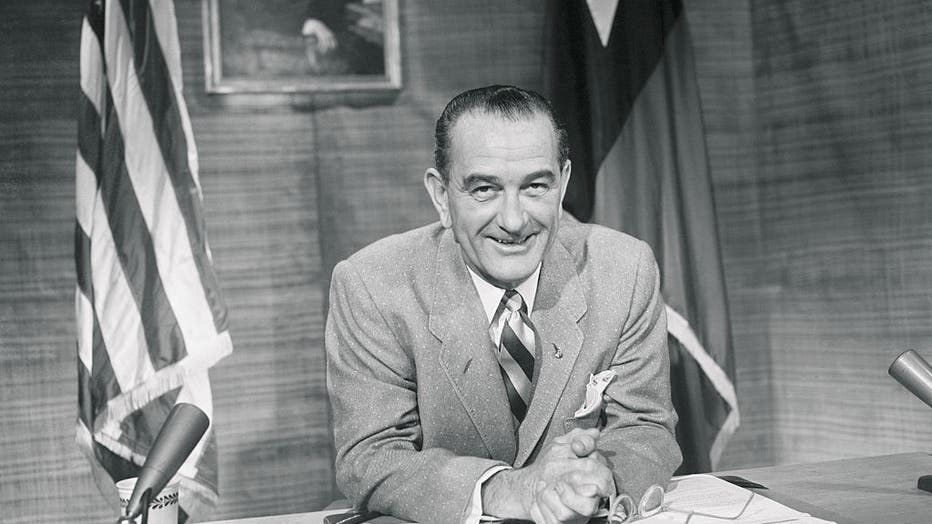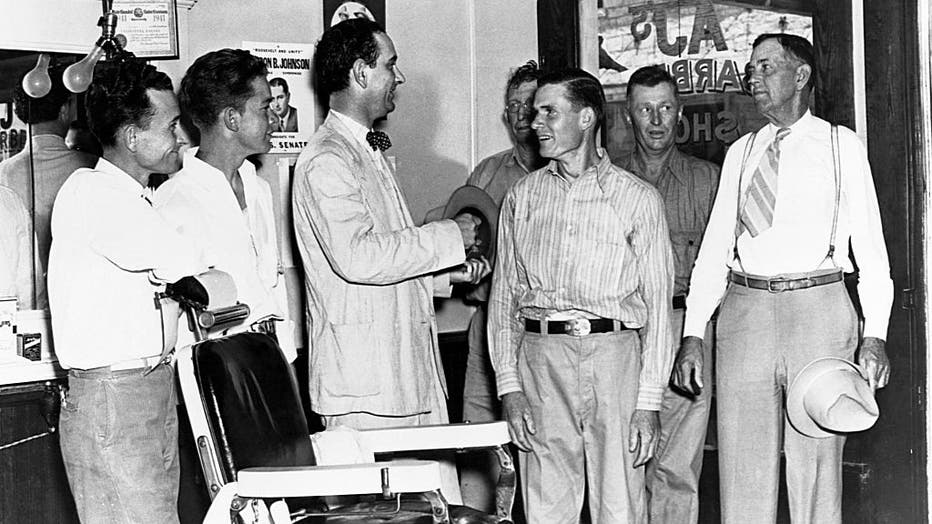‘Window Into History’: Tapes Detail LBJ’s Stolen Election
‘Window into history’: Tapes detail LBJ’s stolen election
DALLAS, Texas - The story was a blockbuster: A former Texas voting official was on the record detailing how nearly three decades earlier, votes were falsified to give then-congressman Lyndon B. Johnson a win that propelled the future president into the U.S. Senate.
The audio recordings from Associated Press reporter James W. Mangan’s interviews for the 1977 story were posted this week on the LBJ Presidential Library and Museum’s archival website, Discover LBJ. After Mangan’s death in 2015 at the age of 87, his family found the labeled cassette tapes at his San Antonio home and donated them last summer to the library on the campus of the University at Texas at Austin.
Luis Salas, the former South Texas election judge, told Mangan for the story: "Johnson did not win that election; It was stolen for him. And I know exactly how it was done."
Mangan’s son, Peter, said listening the tapes was like getting "a little window into history."

(Original Caption) Senate Democratic leader Lyndon Johnson is shown as he addressed
a TV-radio audience last night. Behind him are the flags of the U.S. and of Texas. The Democratic leader
charged that the administration "is now pushing us into a third farm depression."
On one cassette, he said, it sounds like his father is in his car, reciting what he’d just been told.
"You can hear cars going by and he’s kind of, you can tell he’s a little excited, because I think he finally got the goods," Peter Mangan said.
Mark Lawrence, the library’s director, said the recordings are "deeply connected to one of the big mysteries and controversies that’s hung around LBJ for decades." In a 1984 oral history that Salas gave to the library, he said one of the reasons he finally decided to talk was because he had been quite ill.
Mangan said in a 2008 AP story that as he worked to convince Salas to go on the record, he told him: "If you die, history will never know what happened."
Lawrence said much is now known about Box 13, thanks to both Mangan’s 1977 story and research done later by LBJ biographer Robert Caro, who "essentially reaffirmed" Mangan’s story and built on it.
"The kinds of irregularities we can see were at work in the 1948 Senate race in Texas were, I think it’s fair to say, pretty widespread across American history and all regions of the country to one extent or another but certainly in the South and along the Mexican borderlands, as recently as the 1940s," Lawrence said.
Salas told Mangan that the powerful South Texas political boss George B. Parr — who wielded control with favors and coercion — ordered that some 200 votes be added to Box 13. Salas said he then watched as the fraudulent votes were added in alphabetical order, with the names coming from people who hadn’t voted in the election.
The new votes gave Johnson the primary victory over then-Gov. Coke Stevenson by an 87-vote margin. Johnson — subsequently bestowed with the nickname "Landslide Lyndon" — went on to easily defeat the Republican in the general election, long before the GOP became the dominant force in Texas politics.

Lyndon B. Johnson campaigns in Texas for a seat in the United States Senate
(Photo by © CORBIS/Corbis via Getty Images)





















